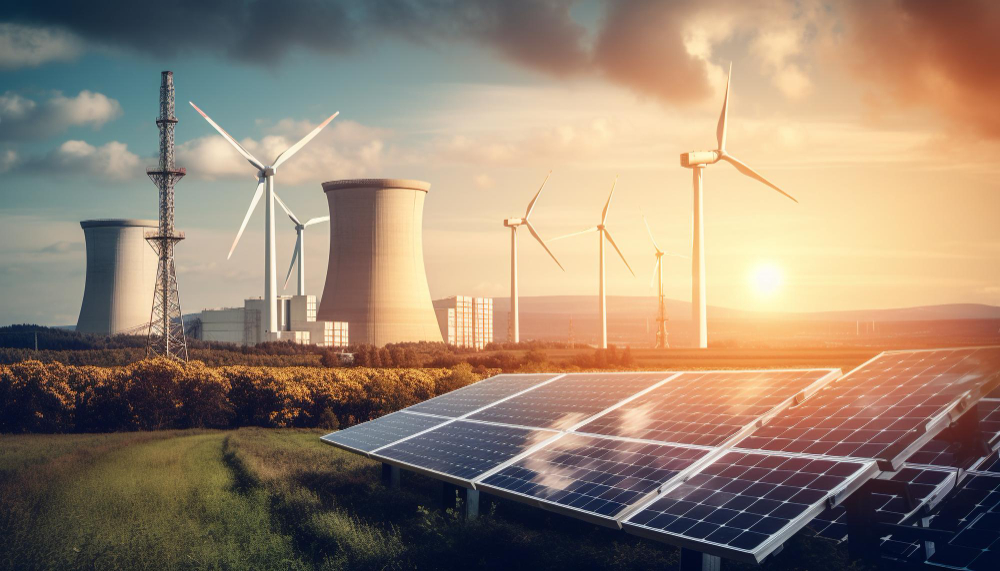The role of renewable energy in modern power generation systems has become increasingly vital as the world shifts towards sustainable and environmentally friendly energy sources. With growing concerns over climate change and the depletion of fossil fuels, renewable energy sources such as solar, wind, and hydropower are emerging as key players in powering homes, industries, and cities.
These energy solutions not only reduce carbon emissions but also contribute to energy security and long-term economic growth. Modern power generation is rapidly evolving to incorporate these clean and efficient alternatives into its framework.
Key Renewable Energy Sources in Power Generation
Renewable energy sources play a crucial role in modern power generation, offering sustainable alternatives to traditional fossil fuels. Here are the key sources:
- Solar Energy: Solar power harnesses energy from the sun using photovoltaic cells or solar panels. It’s one of the most abundant and rapidly growing renewable sources, providing clean energy for homes, industries, and businesses.
- Wind Energy: Wind turbines convert the kinetic energy from wind into electricity. Wind farms, both onshore and offshore, are increasingly being used to generate significant amounts of power globally.
- Hydropower: Hydropower uses the flow of water from rivers or dams to produce electricity. It’s a reliable and long-established renewable energy source, particularly useful in regions with abundant water resources.
- Geothermal Energy: Geothermal power plants generate electricity by tapping into the heat from the Earth’s core. This source is both renewable and highly efficient, especially in regions with significant underground heat activity.
- Biomass Energy: Biomass power generation involves using organic materials like wood, agricultural waste, and other plant-based substances to produce electricity and heat. This process helps reduce waste while generating renewable energy.
Benefits of Renewable Energy in Power Systems
Renewable energy offers numerous advantages for power systems, transforming how we generate and consume energy. These benefits extend from environmental impacts to economic gains:
- Environmental Impact: Renewable energy sources produce little to no greenhouse gases, helping to combat climate change and reduce air pollution compared to fossil fuels. This shift supports a cleaner and healthier environment.
- Sustainability: Unlike fossil fuels, renewable resources such as solar and wind are abundant and replenished naturally. This ensures a long-term, stable energy supply without depleting resources.
- Economic Growth: Investing in renewable energy technologies creates jobs and stimulates local economies. It also reduces dependence on imported fuels, enhancing energy security and stabilising energy prices.
Challenges of Integrating Renewable Energy
Integrating renewable energy into existing power systems presents several challenges. Addressing these issues is crucial for a smooth transition to a more sustainable energy future:
- Intermittency: Renewable sources like solar and wind are weather-dependent and produce variable power. This intermittency can make maintaining a consistent energy supply difficult and requires advanced storage solutions.
- Infrastructure: Existing power grids may not be equipped to handle the integration of renewable energy sources. Upgrading infrastructure to support distributed generation and ensure efficient energy distribution is often necessary.
- Cost: Initial investments in renewable energy technologies and supporting infrastructure can be high. Although long-term savings and benefits are substantial, the upfront costs can be a barrier to widespread adoption.
Future-Proofing with Renewables
Renewable energy is transforming modern power generation systems by offering sustainable, eco-friendly alternatives to traditional energy sources. The adoption of solar, wind, hydropower, and other renewables is essential for reducing carbon emissions, enhancing energy security, and promoting long-term economic growth. To fully harness the potential of renewable energy, it’s vital to collaborate with reputable energy brands that provide innovative solutions and expertise. By doing so, individuals and businesses can ensure a seamless transition to cleaner, more efficient power generation systems.



